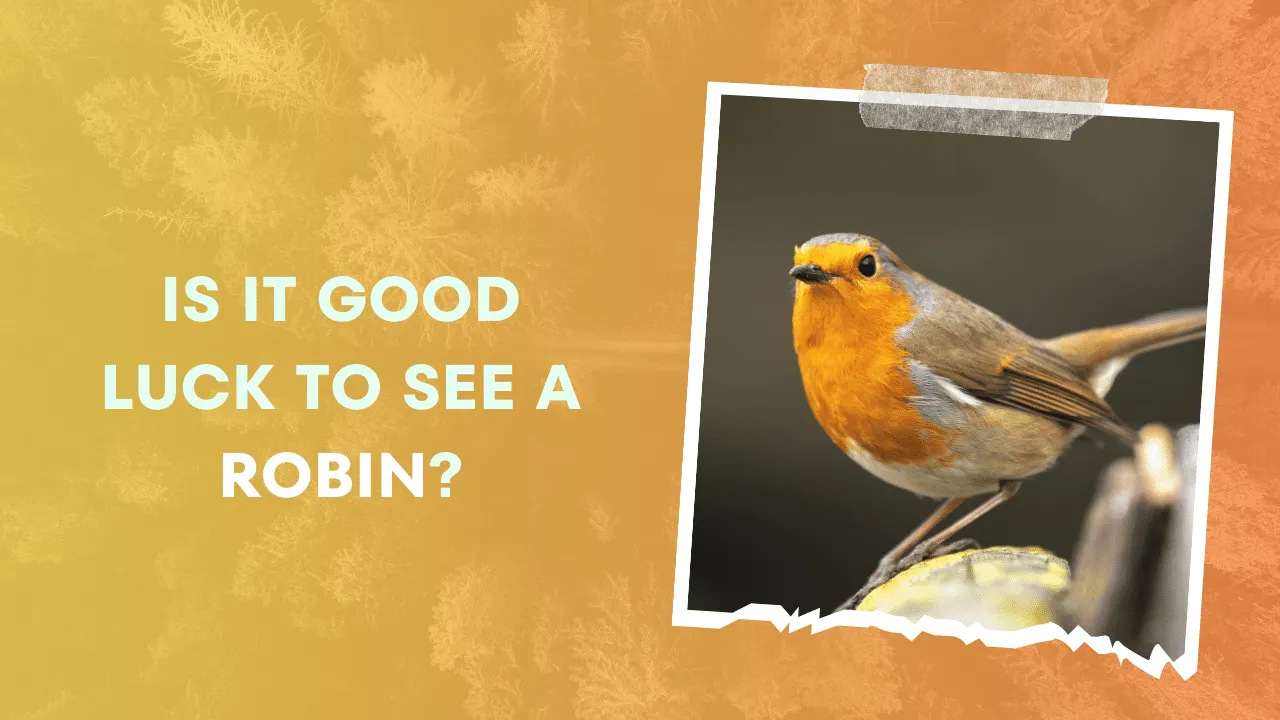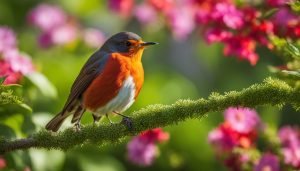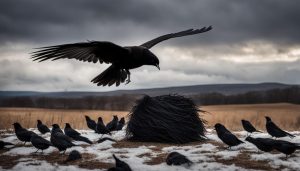With its vibrant red breast and cheerful song, the sight of a robin often elicits feelings of joy and warmth in many.
For centuries, the presence of this bird has been regarded with favor, often considered an omen of good fortune.
But how much of this is rooted in ancient beliefs, and is there any scientific basis behind these sentiments? Let’s delve into the captivating world of robins and their significance in our lives.
Contents
- 1 Folklore and Mythology Surrounding Robins:
- 2 Is it Good Luck to See a Robin?
- 3 Robins and Science: A Positive Impact on Well-Being?
- 4 The Cultural Reverence for Robins:
- 5 Inviting Robins to Your Haven:
- 6 Conclusion
- 7 FAQs
- 7.1 Why do people believe seeing a robin brings good luck?
- 7.2 Are there any countries or cultures that view the robin differently?
- 7.3 Do other birds carry similar good luck connotations like the robin?
- 7.4 Is there any particular time or situation when seeing a robin is considered especially lucky?
- 7.5 How can I increase my chances of seeing a robin if I want some of that good luck?
Folklore and Mythology Surrounding Robins:
The enchanting tales and myths surrounding robins are as old as time. Many cultures have held robins in high regard, considering them as messengers from a different realm or even souls that have returned.
In the rich tapestry of Celtic myths, the robin is a unique companion to the Oak King, who symbolizes life, fertility, and the summer season. Given the Oak King’s association with renewal, robins, in turn, are regarded as symbols of rebirth and auspicious new beginnings.
The Christian narrative offers another poignant story related to robins. As per the tale, a brave robin attempted to alleviate Jesus Christ’s suffering by trying to extract the thorns from His crown during the crucifixion. This act led to staining the robin’s breast with Christ’s blood, thus giving the bird its distinctive red breast.
Also read: Is it Good Luck to See a Peacock?
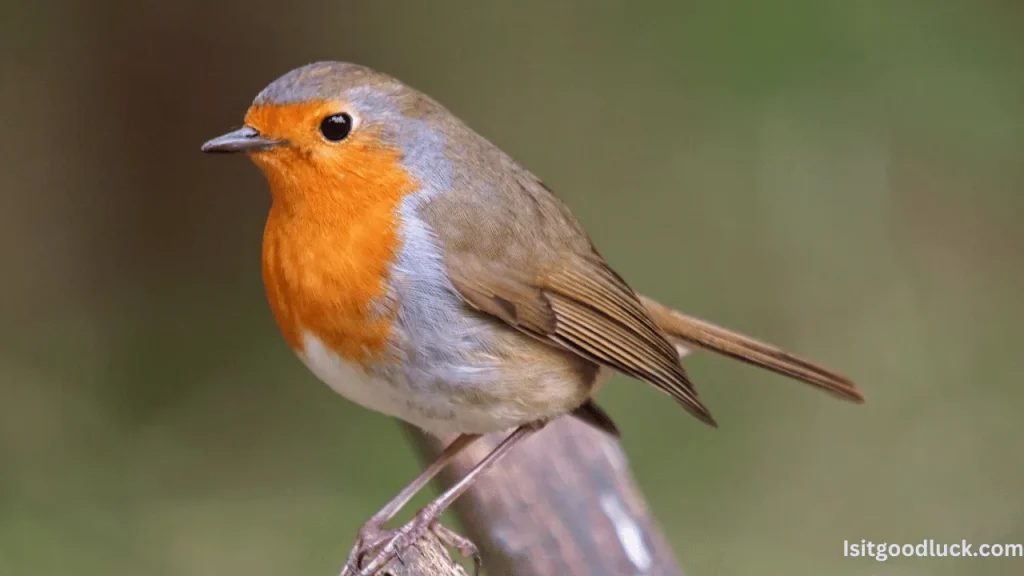
Is it Good Luck to See a Robin?
There’s something special about spotting a robin, isn’t there? For many, this cheerful bird with its bright red breast holds a special place in heart and folklore alike. Throughout history, people have believed that seeing a robin brings good luck.
Some tales say robins are messages from the spirit world, while others think they symbolize new beginnings. While no scientific proof links these lovely birds to fortune, the joy and warmth they bring are undeniable.
So, the next time you spot one, take a moment to enjoy its presence. It might just be your lucky day!
Also read: Is it Good Luck to See a Hawk?
Robins and Science: A Positive Impact on Well-Being?
While the tales and myths offer a fascinating insight, one might wonder about the empirical evidence surrounding robins and their influence on human well-being.
Although there’s no direct scientific proof connecting the sighting of a robin with good luck, there is intriguing research on how birds, in general, affect our psychological state.
A particular study showcased in the Environmental Science & Policy journal underscores the correlation between the diversity of birds in an area and the happiness quotient of its residents.
The presence of birds, their songs, and activities foster a deeper connection with nature, enhancing our overall mood.
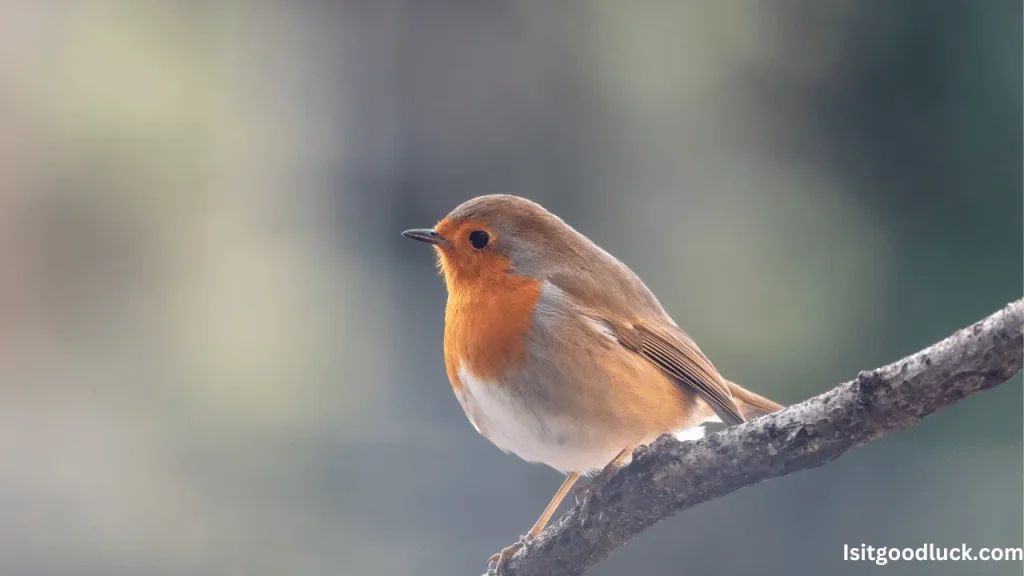
The Cultural Reverence for Robins:
The love and reverence for robins aren’t restricted to tales and myths. Their cultural footprint is vast and varied.
In the United Kingdom, the robin isn’t just a bird – it’s a cultural emblem, holding the esteemed title of the national bird. The Christmas season in the UK is incomplete without the symbolic presence of the robin, encapsulating the spirit of joy and giving.
Across the Atlantic, the robin enjoys a similar admiration in the United States. It’s the designated state bird for Connecticut, Michigan, and Wisconsin, symbolizing the rejuvenating spirit of spring and fresh starts.
Inviting Robins to Your Haven:
If the allure of robins has captivated you, and you wish to see them fluttering around in your space, there are specific measures you can undertake:
- Feed to Attract: Robins have a diverse palate, ranging from insects to fruits. Incorporating native plants in your garden and installing bird feeders can serve as an invitation.
- Quench Their Thirst: Like all living beings, robins seek fresh water sources for drinking and occasional splashing. Introducing a birdbath can be an effective way to beckon them.
- Shelter Them: Robins are particular about their nests, preferring the cozy confines of trees and shrubs. Incorporating such vegetation can make your yard a favored nesting spot.
Conclusion
Though seeing a robin might not guarantee a windfall or stroke of good luck, there’s no denying the profound positive impact these birds can have on our mental and spiritual well-being.
Their cultural significance is a testament to their timeless charm. And, by making our surroundings robin-friendly, we can bask in their delightful presence and perhaps, just for a moment, feel the magic that centuries of tales and beliefs ascribe to them.
Also read other articles regarding birds good luck.
FAQs
Why do people believe seeing a robin brings good luck?
People have long associated robins with good luck due to various cultural, mythological, and religious beliefs. For instance, in Celtic legends, the robin is connected to the Oak King, a symbol of life and renewal. In Christian stories, the robin is believed to have gotten its red breast from trying to alleviate Jesus Christ’s suffering during the crucifixion.
Are there any countries or cultures that view the robin differently?
While many cultures view the robin as a sign of good luck or positive change, interpretations can vary. In the UK, for example, the robin is a cherished symbol of Christmas. In other cultures, the robin might not hold the same significance or might not be present at all.
Do other birds carry similar good luck connotations like the robin?
Various cultures have ascribed good luck or other positive attributes to different birds. For example, storks are often associated with bringing babies or good news. In many cultures, doves symbolize peace and love; seeing an eagle might be considered a sign of strength and power.
Is there any particular time or situation when seeing a robin is considered especially lucky?
While seeing a robin is generally deemed a positive sign, spotting one at the start of a new venture, during times of change, or at the beginning of spring (a season of renewal) might be seen as especially promising by some.
How can I increase my chances of seeing a robin if I want some of that good luck?
To invite robins into your space, consider creating a bird-friendly environment. This includes offering food through bird feeders filled with seeds or fruits, providing fresh water sources like birdbaths, and ensuring safe nesting spots in trees or shrubs.

